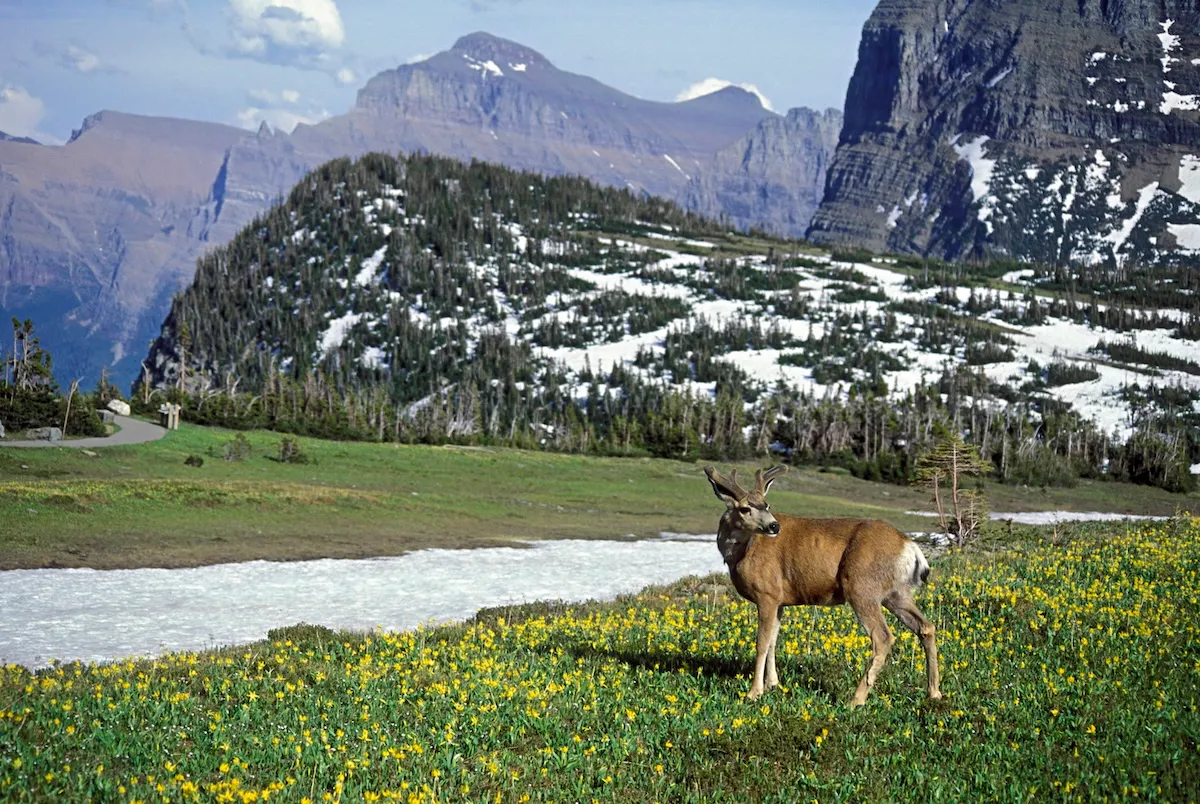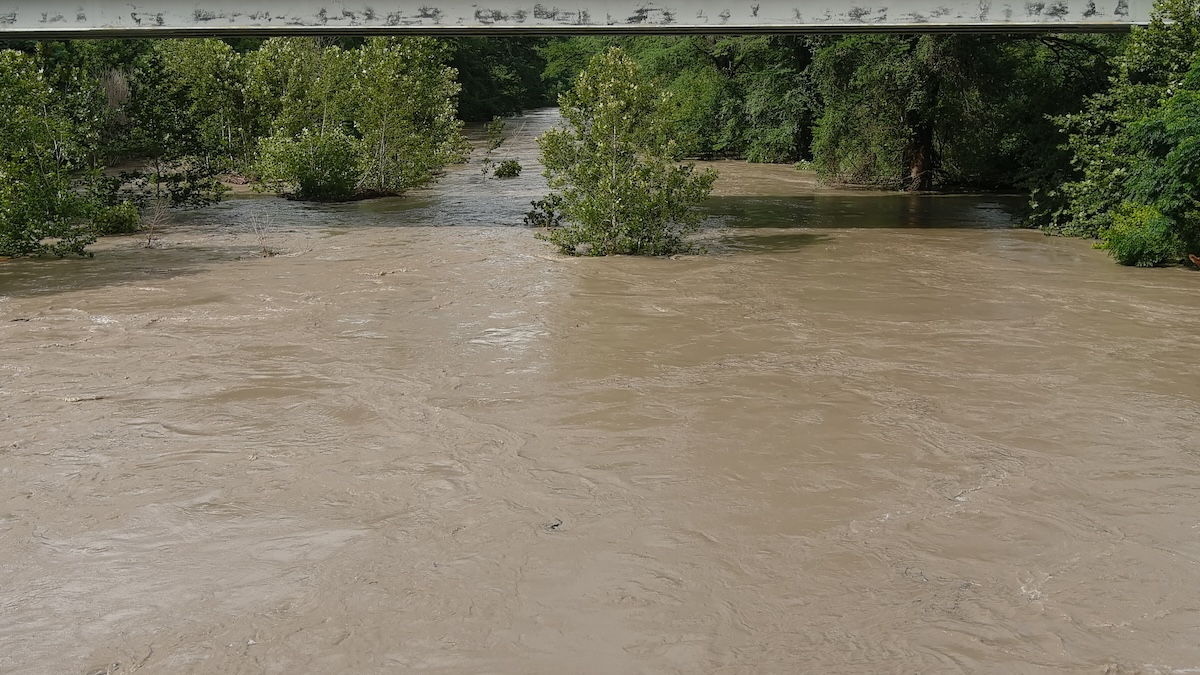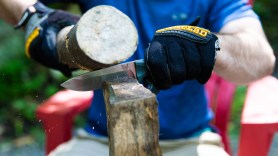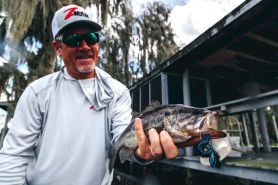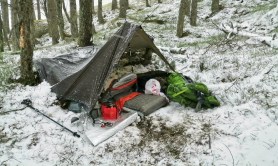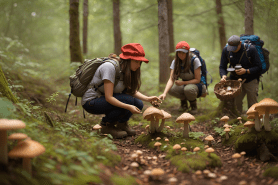

While adventuring, preserving food like meat or fish properly is key, both to avoid wasting it and to make sure that you don’t make yourself sick.
Videos by Outdoors
“Once a piece of meat or fish has turned rancid, you’ll do yourself more harm than good eating it,” says Bear in How to Stay Alive. “But if you know how to preserve food, you can keep it going for months.”
Vegetarians: You might want to stop reading now.
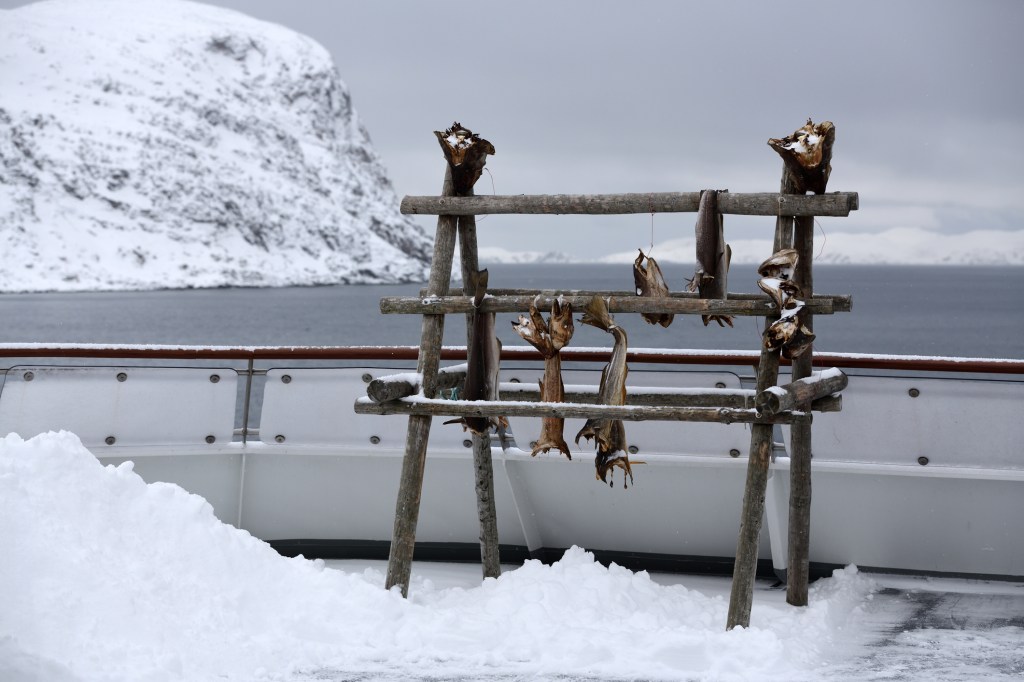
Air-dry it
This technique is useful if you’re in a sunny environment. You can dry whole small animals or fish, or butcher the flesh of larger animals to dry into strips.
For smaller creatures, start by bleeding, gutting and skinning the animal. Next, hang up the carcass on a stake in a sunny place that has a good flow of air. When the outside of the meat is totally dry, break open the carcass (use a rock if you don’t have a knife), exposing the insides. Hang it up again, with the non-dry part facing the sun, and leave it to sun-bake for a second time. This will likely take two days of sun to complete.
With the lean flesh of larger animals, cut it into small strips around 2 inches by a quarter inch, trim off any fat and put it on a drying rack; to make one, poke two branched sticks into the ground with a cross-stick resting between them. Hang the strips separately and leave the meat in the sun until it is crisp and will snap. This should take around 24 hours.
Smoke it
Smoking is a good way to preserve meat and fish if you’re in an area that isn’t sunny. Start by digging a pit and lighting a fire in the bottom. Let the fire burn down to embers, then add green twigs. If the only twigs you can find are very dry, soak them in water first.
Cut up and hang the meat above the fire, in the same way as for air-drying. Don’t let it get too hot—you don’t want to cook the meat. Keep the fire fed with green matter to maintain the smoking process. It takes around 24 hours, and the meat should crack when bent, just as with air-drying.
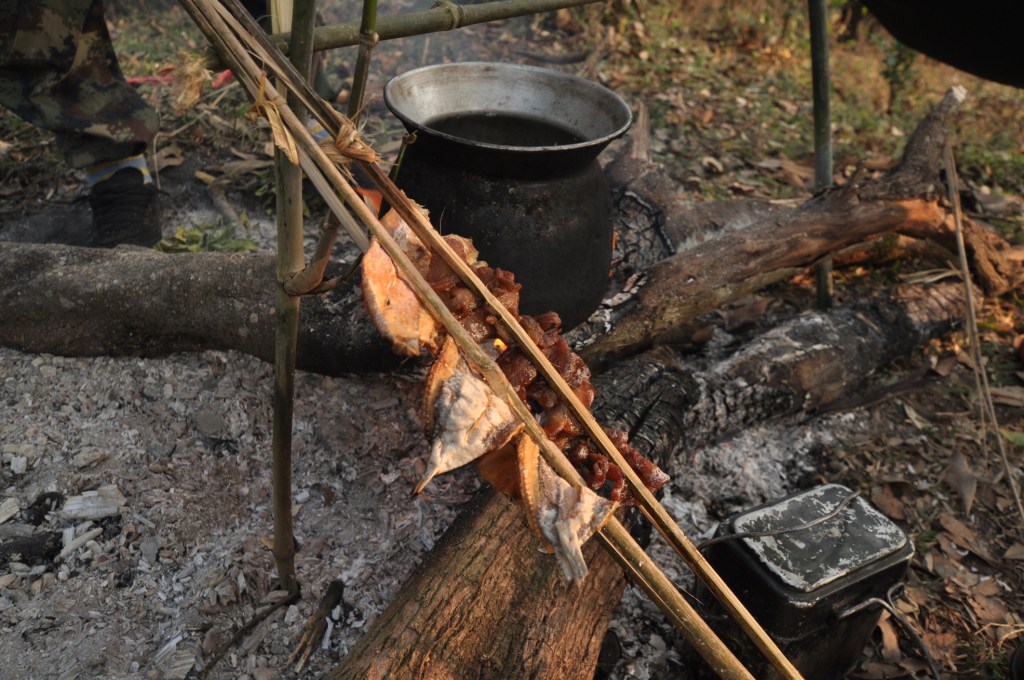
Salt it
This way of preserving meet goes back to ancient times and was often used by the navy on long voyages.
“It’s not particularly practical in a survival situation, but if you’re by the sea and can boil away sea water until you’re left with a residue of salt, you can rub this into your meat or fish before air-drying or smoking it,” says Bear.
Salting speeds up the smoking or air-drying process. Make sure to soak the meat or fish in clean water before eating it, or at least wipe off excess salt first.
Freeze it
Obviously, this will only work if you happen to be in sub-zero temperatures.
“In Arctic environments, nature has provided you with a ready-made food preservation system: snow and ice,” says Bear.
Skin and gut the meat or fish as normal, and then cut it up into small pieces. Dig a hole and pack it in snow and ice.
Choose your later portions to cook over a fire wisely, as you shouldn’t refreeze anything that has thawed.
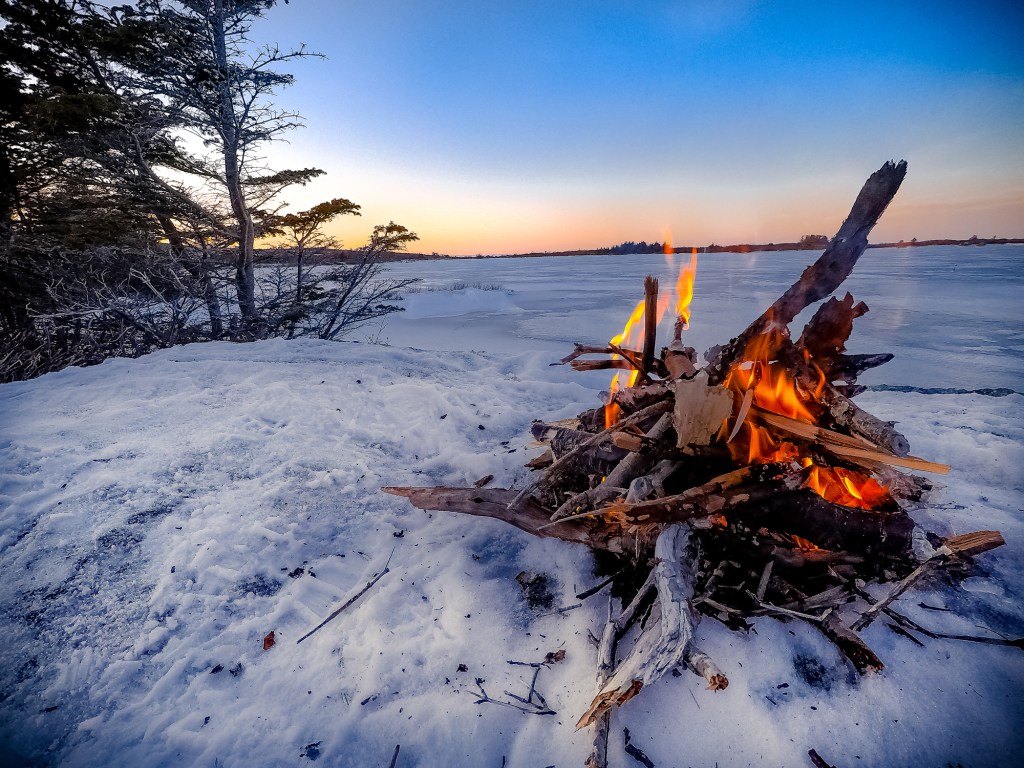
Make it into pemmican
You can turn meat into edible (but nasty-tasting) pemmican using equal quantities of dried meat and suet, or rendered animal fat, plus dried fruit, if you have any on hand.
To do: Melt the fat, grind the meat to a powder, and mix the fat in. Add any pieces of dried fruit. The result will be the same texture as sausage meat. You can either eat it like this, or dissolve it in boiling water to make a soup.
“Pemmican tastes horrible and is hardly a healthy way to live for long, says Bear. “But for anyone venturing out into the wild, this mixture of preserved meat, fruit and fat is the way ahead. This is the stuff that kept the great Antarctic explorers alive for months. Native Americans kept it for years.”
More from Bear Grylls:
- How to Make a Toothbrush in the Wild
- How to Build Shelter in a Forest
- What to do If You’re Bitten by a Snake
- How to Navigate Without a Compass
- How to Deal with Injuries in Survival Situations
- How to Find Water in the Mountains
- Priorities of Survival
- How Bear Grylls Lights a Fire
- How Bear Extinguishes a Fire
- How Bear Grylls Finds Food in the Jungle
- How to Escape Quicksand
